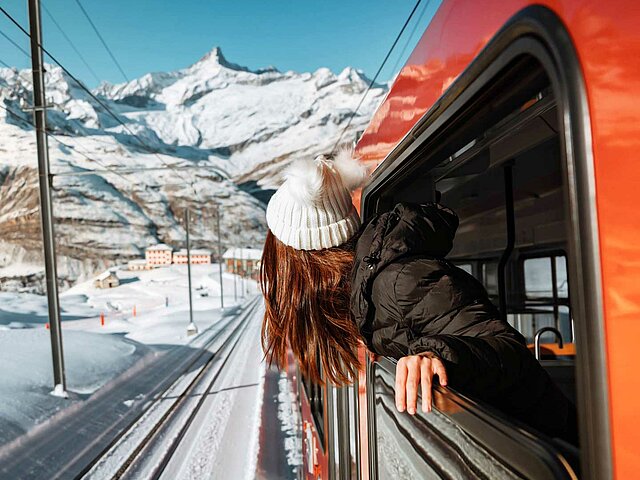
Ski holidays can be sustainable
Some good ideas for greater sustainibility
With the onset of winter comes the ski holiday, and ski holidays have a bad reputation these days: ski slopes that are reminiscent of motorways and the energy-intensive production of artificial snow lead to an enormous depletion of natural resources. On top of this comes the energy consumption of the hotel facilities and the ski lifts. Finally, the arrival of millions of tourists, mostly by plane or car, is a major contributor to the poor carbon footprint of winter tourism.
But there is an alternative. To make ski tourism more environmentally friendly, many resorts are focusing on greater sustainability.
Climate-friendly mobility with the Alpine Pearls
The Alpine Pearls association, for example, is made up of 19 resorts in Germany, Austria, Italy and Slovenia. It focuses on soft mobility. Wherever possible, guests are encouraged to travel by bus or train. To Austria and Italy, the night trains operated by the Austrian Federal Railways (ÖBB) are a good option. These also depart from Germany. In the destinations, public transport or shuttle services provided by the hosts provide the necessary means of getting around. Ski equipment can be hired. So no one has to travel with bulky luggage. ÖBB also has a special offer for winter sports enthusiasts: a combined winter sports ticket is available for 15 ski resorts, which includes a ski pass for up to six days in addition to the train journey. This is an area with great potential: According to the World Wildlife Fund (WWF), only five per cent of the 45 to 50 million tourists who travel each year arrive by train.
Tyrol uses green electricity for artificial snow
The Wilder Kaiser - Brixental ski world is also accessible by train. It is also trying to tackle the tricky issue of artificial snow. Local hydroelectric power provides the energy for the artificial flakes. In addition, according to the resort's website, only drinking water-quality water is used from 16 snowmaking lakes, most of which fill automatically in the summer. To ensure that no more snow is produced than necessary, GPS-controlled slope management is used.
The operators of the ski resort are also trying to be as sustainable as possible in other ways as well: The ski lift is powered by solar energy. Since 2008, a chalet has been heated using heat recovered from two gondola lifts. All skiers with ski equipment and a valid ski pass can use the ski buses in the resort free of charge.
"Winter as it used to be" in the Swiss Alps
Those who find the bustling Brixental too busy and prefer to ski on natural snow can head to Switzerland. The reopened Schatzalp-Strela ski area aims to attract slow skiers and children with "peace and quiet instead of hustle and bustle" and promises "winter as it used to be". This includes no artificial snow and no new lifts. The operators accept that the slopes may have to open a little later or close a little earlier than their neighbours with artificial snow. However, those wishing to stay in chic Davos will need to bring the necessary small change.
Of course, as well as choosing the right resort and travelling in an environmentally friendly way, skiers themselves can help to protect the environment. For example, the WWF recommends staying in accommodation that has been certified as sustainable. And once you have arrived, stay off the slopes, trails and paths to avoid endangering wildlife.
It may be a little more inconvenient or require more preparation. But if you want to spend your winter holiday on skis, you can do it sustainably.
© Foto: oatawa (shutterstock)



